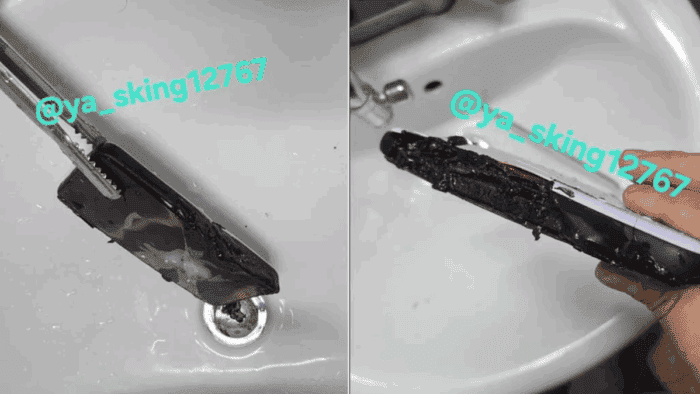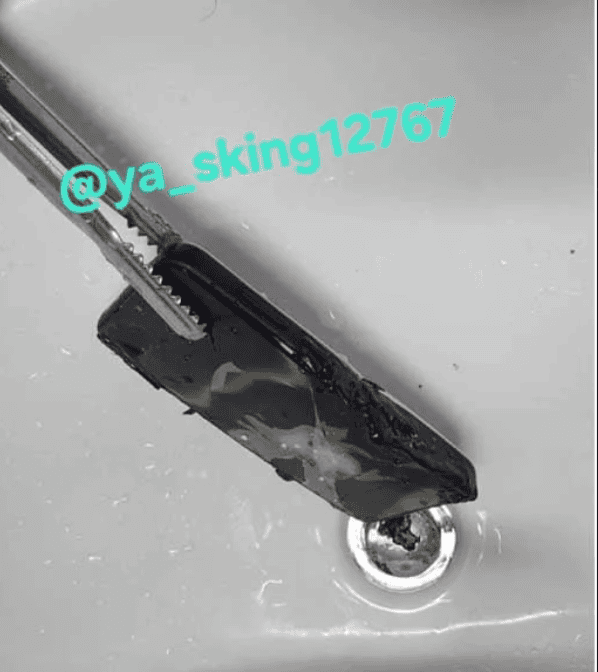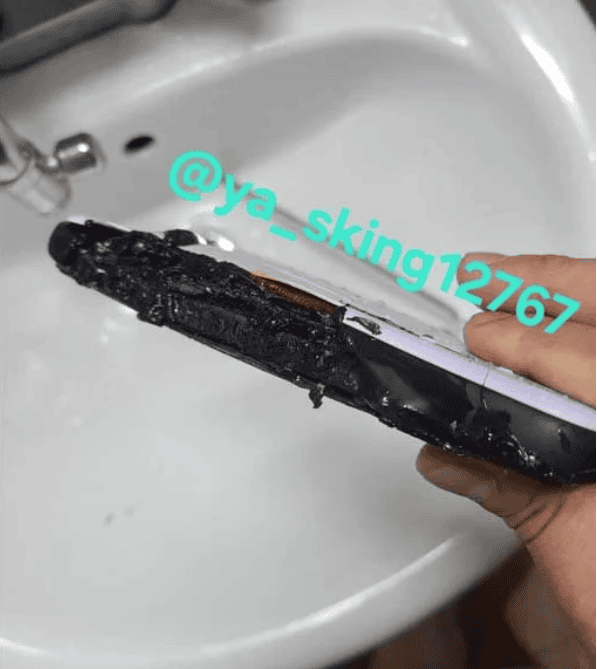PhonesSamsung
A Samsung Galaxy S25 Reportedly Exploded While Charging

Nick Papanikolopoulos
June 19, 2025

A Galaxy S25 Plus has reportedly exploded during charging—an incident that’s already circulating across social media and stirring up concern about Samsung’s battery safety practices. The report comes from X user @ya_sking12767, who shared a set of disturbing photos allegedly showing the aftermath. The images show a Galaxy S25 Plus that appears to have been severely damaged—its frame twisted and blackened, with parts of the casing melted away entirely. According to the user, the explosion happened during routine charging. No details yet on injuries, if any.

As of now, Samsung hasn’t issued a statement. And without confirmation or investigation results, it’s difficult to know whether this is an isolated case—or the first sign of something deeper.
A Familiar Fear: Battery Safety Under Scrutiny Again
It’s hard not to think of the Galaxy Note 7 when incidents like this surface. That phone’s battery issues back in 2016 led to one of the largest smartphone recalls in history—and a massive hit to Samsung’s reputation. Since then, Samsung has significantly ramped up safety testing. Every device reportedly goes through an 8-point battery check, and the company has been open about taking a conservative approach to battery design. So when something like this happens, even once, it’s unsettling.

This time around, it’s the Galaxy S25 Plus, a device released just months ago. It carries a 4900mAh battery—the same capacity as its predecessor, the S24 Plus—and supports 45W fast charging. Nothing about the power setup is new or experimental.
What Could Have Caused It?
It’s too early to say for sure, but there are a few possibilities.
One potential issue is third-party accessories. The post doesn’t specify whether the user was charging with an official Samsung charger or cable. That matters. Uncertified accessories can lack safety protections, and high-speed charging without proper regulation is a known risk factor.
That said, Galaxy phones include built-in safeguards—thermal sensors, charge cutoffs, and intelligent power management—all designed to prevent overheating and overcharging. But even the best systems aren’t foolproof. A single battery cell defect or software glitch can occasionally slip through.
Also worth noting: the user held the destroyed phone in one of the photos, while another image shows the device being handled with tongs. It’s not clear when the photos were taken or how soon after the incident. Still, the damage appears significant enough that the situation could’ve been far worse had the device been in a pocket or hand during the event.
Rare, But Serious
Let’s be clear—battery explosions are rare. Billions of lithium-ion batteries are in use daily, and most behave exactly as they should. Still, when failures happen, they can be catastrophic.
Samsung (and other manufacturers) have worked hard to prevent these kinds of incidents from reoccurring. But when they do, even if only once, they raise questions: Was it a fluke? Or a symptom of a larger issue?
For now, there are no reports of other Galaxy S25 Plus devices suffering the same fate. And until Samsung confirms what happened, speculation is all we have.
What Galaxy S25 Plus Users Can Do
Until more is known, the usual advice holds:
- Stick to original chargers and accessories.
- Avoid overnight charging or placing your phone under pillows or blankets while plugged in.
- Keep an eye on device heat—if something feels off, unplug it.
Samsung will likely investigate the incident. Whether or not it turns out to be a defect, the company will need to reassure customers that this isn’t something systemic.
We’ll update this story as more details become available.
Disclaimer: We may be compensated by some of the companies whose products we talk about, but our articles and reviews are always our honest opinions. For more details, you can check out our editorial guidelines and learn about how we use affiliate links.Follow Gizchina.com on Google News for news and updates in the technology sector.